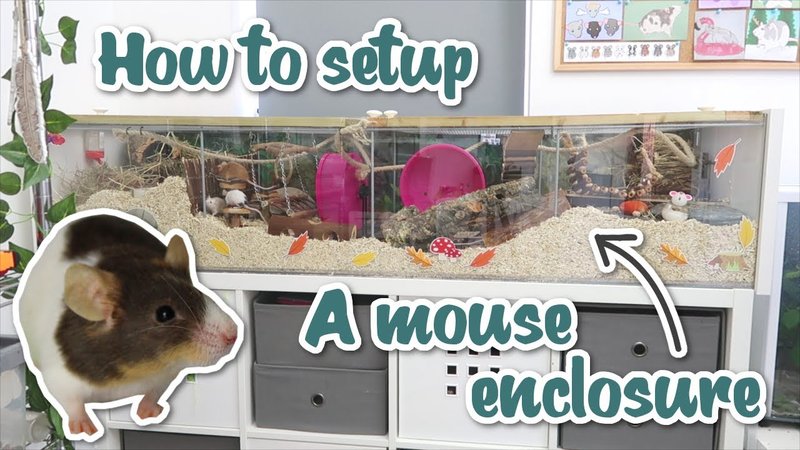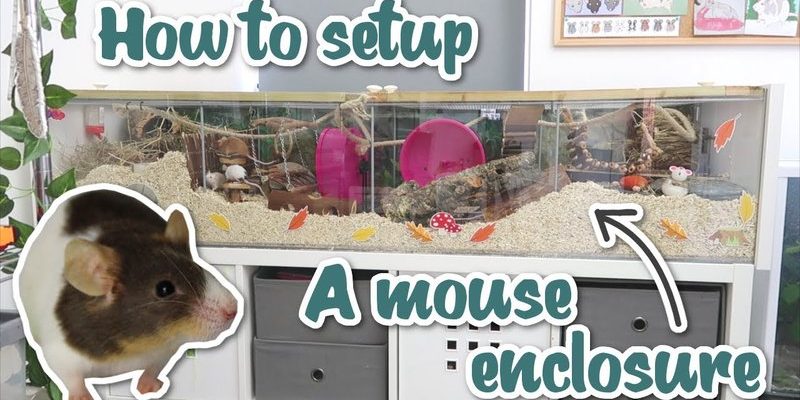
Taking care of a long-haired mouse is like being a little gardener. You’re nurturing a delicate flower that needs the right soil, water, and sunshine to thrive. Each aspect of their care is essential for their well-being. Luckily, with the right knowledge and supplies, you can create a comfortable, happy home for your long-haired friend. So, let’s dive into everything you need to know to ensure your mouse feels right at home.
Cage Setup for Long-Haired Mice
The first thing you need to think about is the cage. It’s their little kingdom, and it should be designed thoughtfully. A spacious cage is crucial for a long-haired mouse. Ideally, you want a multi-level cage with plenty of room to explore and climb. Look for options that are at least 24 inches long, 12 inches wide, and 18 inches high. If your mouse has space to roam, it’ll help them stay active and healthy.
Materials matter too! Go for a cage made of metal with a solid floor. This prevents those little feet from getting hurt on wires. You’ll also want a cage with bars spaced closely enough to prevent escapes. Remember, mice are small but mighty escape artists! If your cage has a plastic bottom, ensure it’s easy to clean since mice can be a bit messy.
Next, consider the bedding. Long-haired mice are prone to matting, so you’ll want to use soft, absorbent bedding like aspen shavings or paper-based products. Avoid cedar or pine shavings, as they can be harmful to their respiratory system. And don’t forget to add a cozy hiding spot. A small, enclosed space where your mouse can burrow and feel secure is essential for their mental health.
Diet for Your Long-Haired Mouse
Now that you’ve got the cage set up, let’s talk about diet! A well-balanced diet is vital for your long-haired mouse’s health. Start with high-quality commercial mouse food, which provides essential nutrients. Look for a mix that includes seeds, pellets, and grains. These mixes are usually fortified with vitamins and minerals, giving your mouse a solid nutritional foundation.
In addition to commercial food, you can supplement their diet with fresh fruits and veggies. Think about options like broccoli, peas, and carrots—just cut them into tiny pieces to make them easier to eat. But remember, some foods are a no-go. Avoid citrus fruits, onions, and garlic, as these can upset their tummy.
Water is just as important. A clean water bottle is ideal, as it helps prevent spills and keeps their bedding dry. Change the water daily to keep it fresh. You might even want to check out special water bottles with small nozzles that are easier for their tiny mouths to use.
Enrichment and Socialization
Just like us, long-haired mice need mental stimulation to keep their spirits high. Enrichment is key here! Providing toys and activities for your mouse will keep them entertained and prevent boredom. You can add climbing toys, tunnels, and chew toys to their cage.
Consider creating a mini obstacle course using cardboard boxes or tubes. Mice love to explore, and this will satisfy their curiosity. Rotate the toys regularly; this keeps the environment fresh and exciting. You might be amazed at how a simple change can spark your mouse’s interest!
Socialization is equally important. Make time to handle your mouse gently so they get used to your presence. But be patient! These little guys may take a while to warm up to you. One effective method is to offer treats while you sit quietly near their cage. Over time, they’ll learn that you’re a source of yummy snacks and comfort. Just remember, never rush it; let them come to you!
Grooming Your Long-Haired Mouse
Since long-haired mice have that beautiful coat, grooming becomes essential. Without regular upkeep, their fur can easily become matted. Aim to groom them at least once a week. Use a soft-bristled brush designed for small animals. This not only keeps their coat nice and tidy but also helps you bond with your pet.
While grooming, check for any signs of discomfort or skin issues. Mice can be prone to skin problems, so keep an eye out for any changes in their fur or skin. If you see anything unusual, a trip to the vet might be necessary.
If your mouse gets especially dirty or matted, a gentle bath in lukewarm water can help. Just make sure to dry them thoroughly afterward, as they can get cold quickly. Use a soft towel and let them air dry in a warm area away from drafts.
Health Monitoring for Long-Haired Mice
As a mouse owner, being vigilant about your pet’s health is key. Watch for any changes in eating habits, activity levels, and behavior. If your mouse seems lethargic, has a poor appetite, or shows signs of distress, it’s time to consult a vet.
Regular check-ups can help prevent health issues. Keep an eye on their weight, too, as obesity can be a concern in pet mice. If you notice your mouse struggling to move around, it might be time to reevaluate their diet and exercise routine.
Another important factor is keeping their living space clean. Regularly clean the cage and replace bedding to maintaining a healthy environment. This not only helps prevent illness but also reduces odors, making your home more pleasant.
Caring for a long-haired mouse can be a rewarding experience filled with joy and companionship. From setting up their cage to ensuring a balanced diet and providing enrichment, every bit of care you give helps your tiny friend flourish. Remember, they rely on you for their well-being, so taking the time to learn and adapt their care is vital.
With a little patience and love, your long-haired mouse can thrive in a cozy, happy home. Enjoy the special moments as you bond with your furry companion—after all, every brush of that long, soft fur is a reminder of the love you share. Happy mouse-keeping!

